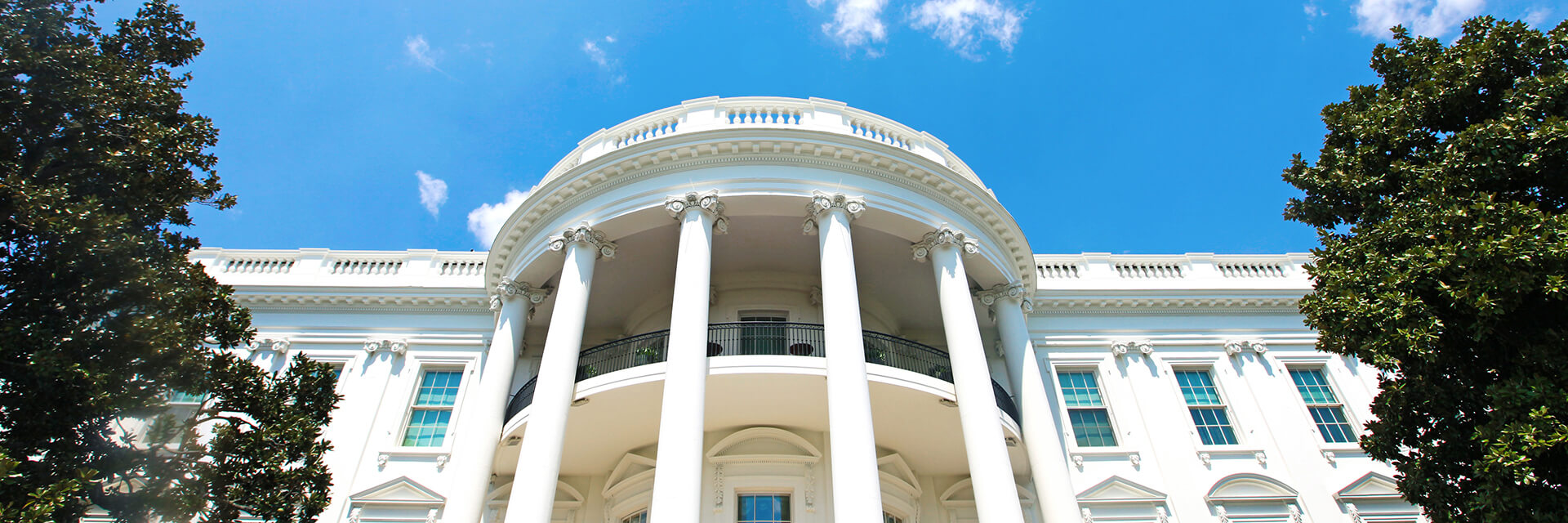
President Addresses Payroll Taxes and Other Pandemic Economic Issues by Issuing an Executive Order and Memoranda
- Published
- Aug 13, 2020
- Topics
- Share
Reacting to a Congressional stalemate, President Trump issued an executive order and three presidential memoranda on August 8 to address the economic consequences of the coronavirus pandemic. These relate to payroll taxes, unemployment compensation, evictions and student loans. Following is a summary of these announcements. Significant additional guidance/clarification will be required. Meanwhile, the specific details may be subject to change as the administration responds to questions raised by these policy decisions.
Deferral of Payroll Tax Obligations
The Treasury is directed to defer the withholding, deposit and payment of certain payroll taxes paid from September 1, 2020 through December 31, 2020. Specifically, the deferral applies to the employee portion of the old age, survivors and disability insurance (OASDI) tax (6.2%) for any employee whose pre-tax wages or compensation payable during any bi-weekly pay period generally is less than $4,000 (or the equivalent with respect to other pay periods). It is unclear how bonus payments will be factored into this eligibility requirement. Taxes are deferred without penalties, interest or additions to tax.
Note that this is a deferral and not a forgiveness of tax – though the Secretary of the Treasury is ordered to explore avenues, including legislation, to eliminate the obligation to pay the deferred tax. Deferral raises an abundance of issues. For example, will employers be obligated to pass on the benefit of the deferral to employees? (Treasury Secretary Mnuchin in a TV interview has said the “[w]e can’t force people to participate” though he expressed the view that many small businesses would participate.) If Congress does not ultimately forgive the deferred taxes, how will the taxes be recovered from employees? These and numerous other questions will need answers.
Unemployment Compensation
Under this memorandum, $400 per week of “lost wage assistance” will be made available under a state’s unemployment insurance system to “eligible claimants” retroactive to August 1, reflecting a $300 federal contribution and $100 from the applicable state. Jobless workers who receive less than $100 a week in unemployment pay from their state are not eligible for the $400 in assistance authorized by President Trump. As drafted, the states would receive their federal money only if they provided their $100 contribution, but under certain circumstances it may be possible for workers to receive the federally contributed $300 on top of their regular unemployment benefits, rather than the expected $400.
The federal contribution would be funded by approximately $45 billion from the Department of Homeland Security’s Disaster Relief Fund; the state funding would be from monies appropriated to state and local governments through the Coronavirus Relief Fund included in the CARES Act to cover costs incurred due to the COVID-19 emergency. (For many states, that money has already been spent or earmarked.) While the program is scheduled to last until December 27, 2020, it has been projected that the federal funding may last as little as four-to-six weeks.
Evictions
The President’s executive order does not explicitly prevent evictions and foreclosures but sets into motion the following –
- The Secretary of Health and Human Services and the Director of the Centers for Disease Control and Prevention are to consider whether any measures temporarily halting residential evictions of any tenants for failing to pay rent are reasonably necessary to prevent the further spread of COVID-19 from one state into any other state.
- The Secretary of the Treasury and the Secretary of Housing and Urban Development (HUD) are to identify any and all available federal funds to provide temporary financial assistance to renters and homeowners who, as a result of the financial hardships caused by COVID-19, are struggling to meet their monthly rental or mortgage obligations.
- The HUD Secretary is to take action, as appropriate and consistent with applicable law, to promote the ability of renters and homeowners to avoid eviction or foreclosure resulting from financial hardships caused by COVID-19. That action may include encouraging and providing assistance to public housing authorities, affordable housing owners, landlords, and recipients of federal grant funds in minimizing evictions and foreclosures.
- In consultation with the Secretary of the Treasury, the Director of the Federal Housing Finance Agency is to review all existing authorities and resources that may be used to prevent evictions and foreclosures for renters and homeowners resulting from hardships caused by COVID-19.
Student Loans
The federal government (including Congressional action through the CARES Act) previously suspended loan payments on student loans held by the Department of Education and waived interest payments through September 30, 2020. The Secretary of Education is to extend the temporary suspension of loan payments and the waiver of interest until December 31, 2020.
Contact EisnerAmper
If you have any questions, we'd like to hear from you.
Receive the latest business insights, analysis, and perspectives from EisnerAmper professionals.











